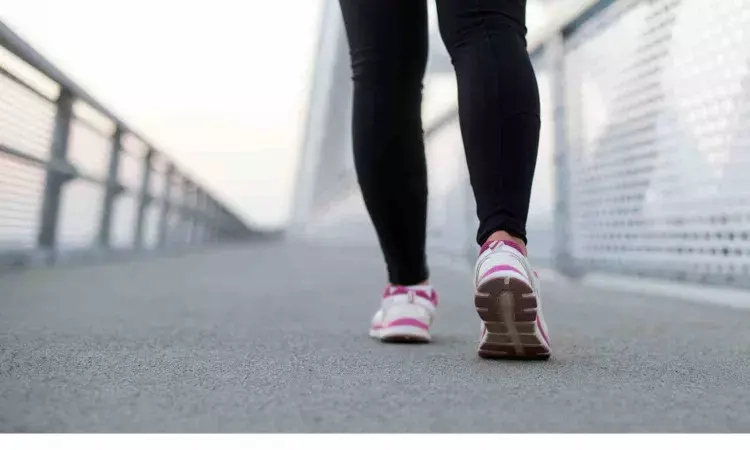- Home
- Medical news & Guidelines
- Anesthesiology
- Cardiology and CTVS
- Critical Care
- Dentistry
- Dermatology
- Diabetes and Endocrinology
- ENT
- Gastroenterology
- Medicine
- Nephrology
- Neurology
- Obstretics-Gynaecology
- Oncology
- Ophthalmology
- Orthopaedics
- Pediatrics-Neonatology
- Psychiatry
- Pulmonology
- Radiology
- Surgery
- Urology
- Laboratory Medicine
- Diet
- Nursing
- Paramedical
- Physiotherapy
- Health news
- Fact Check
- Bone Health Fact Check
- Brain Health Fact Check
- Cancer Related Fact Check
- Child Care Fact Check
- Dental and oral health fact check
- Diabetes and metabolic health fact check
- Diet and Nutrition Fact Check
- Eye and ENT Care Fact Check
- Fitness fact check
- Gut health fact check
- Heart health fact check
- Kidney health fact check
- Medical education fact check
- Men's health fact check
- Respiratory fact check
- Skin and hair care fact check
- Vaccine and Immunization fact check
- Women's health fact check
- AYUSH
- State News
- Andaman and Nicobar Islands
- Andhra Pradesh
- Arunachal Pradesh
- Assam
- Bihar
- Chandigarh
- Chattisgarh
- Dadra and Nagar Haveli
- Daman and Diu
- Delhi
- Goa
- Gujarat
- Haryana
- Himachal Pradesh
- Jammu & Kashmir
- Jharkhand
- Karnataka
- Kerala
- Ladakh
- Lakshadweep
- Madhya Pradesh
- Maharashtra
- Manipur
- Meghalaya
- Mizoram
- Nagaland
- Odisha
- Puducherry
- Punjab
- Rajasthan
- Sikkim
- Tamil Nadu
- Telangana
- Tripura
- Uttar Pradesh
- Uttrakhand
- West Bengal
- Medical Education
- Industry
Sixth vital sign, Walking speed may predict metabolic health in obese individuals: Study

Walking speed can provide insights into health, extending beyond mere mobility, so much so that it is considered to be the “sixth vital sign.” Past studies have suggested that a slow walking speed is correlated with the development of cardiovascular diseases and an increased risk of mortality in the elderly.
A recent study led by Prof. Kojiro Ishii from Doshisha University has found that Walking speed offers valuable insights into overall health, going beyond mobility to be regarded as the "sixth vital sign." Previous studies have linked slower walking speeds to an increased risk of cardiovascular disease and higher mortality rates in older adults.
The researchers explored the connection between subjective walking speed and metabolic diseases risk, particularly in individuals with obesity. The study’s findings, published in volume 14 of Scientific Reports on November 15, 2024, suggest that assessing how a person perceives their walking pace relative to peers could become a vital tool for public health.
“This study clarified that even individuals with obesity, who are at higher risk for metabolic diseases, have lower odds of hypertension, diabetes mellitus, and dyslipidemia if they report a fast subjective walking speed,” notes Prof. Ishii.
The study involved 8,578 individuals with obesity (defined by body mass index), 9,626 individuals with high waist circumference, and 6,742 meeting both criteria. The participants were asked a single question in a health questionnaire: “Is your walking speed faster than that of your age and sex?” Based on their responses, they were categorized as either “fast” or “slow” walkers. The results showed that individuals who identified as faster walkers had significantly lower risks of diabetes (30% lower) and smaller but notable reductions in the risks of hypertension and dyslipidemia.
“This questionnaire is included in a standardized protocol by the Ministry of Health, Labor and Welfare in Japan,” Dr. Ishii explains. “This allowed for a quick and easy assessment without requiring specialized equipment.”
The simplicity and accessibility of this measure makes it ideal for application in clinical and public health settings. Subjective walking speed is self-reported and readily incorporated into standard examinations unlike objective walking speed, which needs resources, time, and space to assess. This aligns with the Japanese health examination guidelines, which emphasize screening for metabolic syndrome and obesity.
The researchers attributed their findings to the relationship between walking speed and overall health. Faster walkers often demonstrate better cardiorespiratory fitness, which is associated with lower levels of inflammation and oxidative stress-two key drivers of metabolic diseases.
According to the study, individuals who walk quickly may be more fit and have a lower risk of metabolic diseases. In addition to lowering the risk of metabolic diseases, encouraging faster walking, even subjectively, could help prevent the “metabolic domino effect,” where obesity leads to lifestyle-related diseases. Obesity is the first step in this cascade, which then advances to diseases like dementia and cardiovascular disease.
Dr. Ishii emphasizes, “Promoting a faster walking pace may be a helpful individual behavior to help prevent metabolic diseases, particularly in individuals with obesity.” Despite being cross-sectional and unable to establish causation, the study’s findings align with previous research on walking pace and health outcomes. Future long-term research could validate these findings and investigate the precise processes behind the noted correlations.
Overall, the study highlights how subjective walking speed measurements could revolutionize the identification of high-risk individuals and help prevent metabolic disorders linked to obesity, especially when incorporated into routine health examinations. As it turns out, a simple question like “Is your walking speed faster than your peers?” could provide life-saving insights.
Reference:
Yamamoto, Y., Ikeue, K., Kanasaki, M. et al. Association between subjective walking speed and metabolic diseases in individuals with obesity: a cross-sectional analysis. Sci Rep 14, 28228 (2024). https://doi.org/10.1038/s41598-024-78541-w
Dr Kamal Kant Kohli-MBBS, DTCD- a chest specialist with more than 30 years of practice and a flair for writing clinical articles, Dr Kamal Kant Kohli joined Medical Dialogues as a Chief Editor of Medical News. Besides writing articles, as an editor, he proofreads and verifies all the medical content published on Medical Dialogues including those coming from journals, studies,medical conferences,guidelines etc. Email: drkohli@medicaldialogues.in. Contact no. 011-43720751


